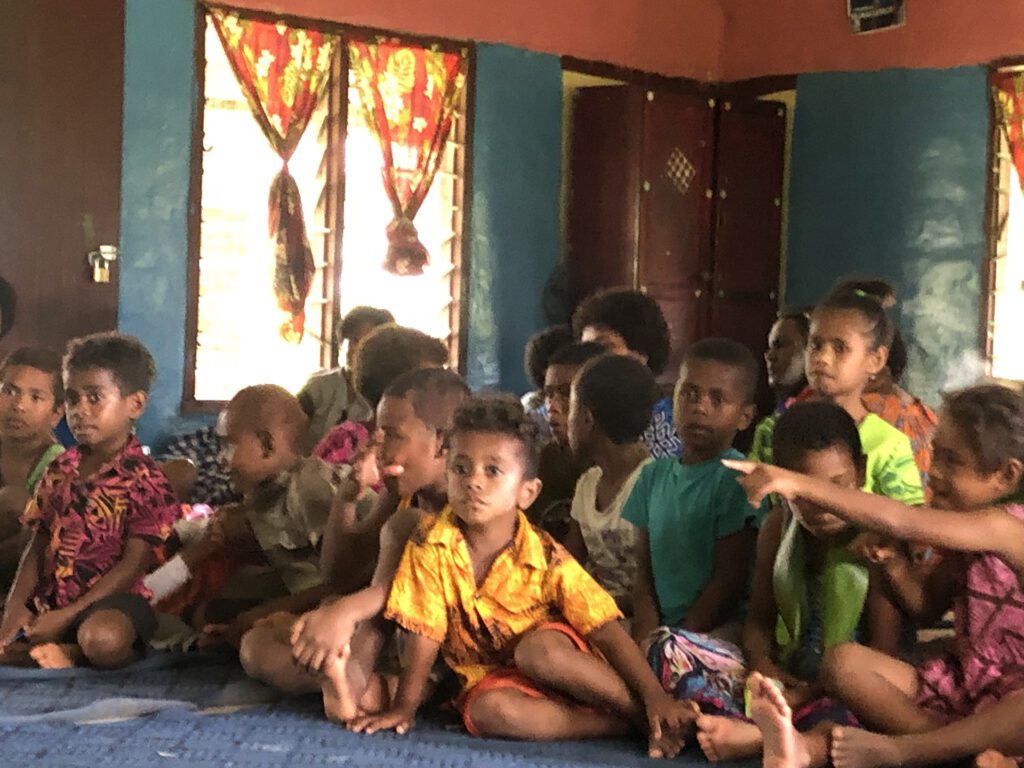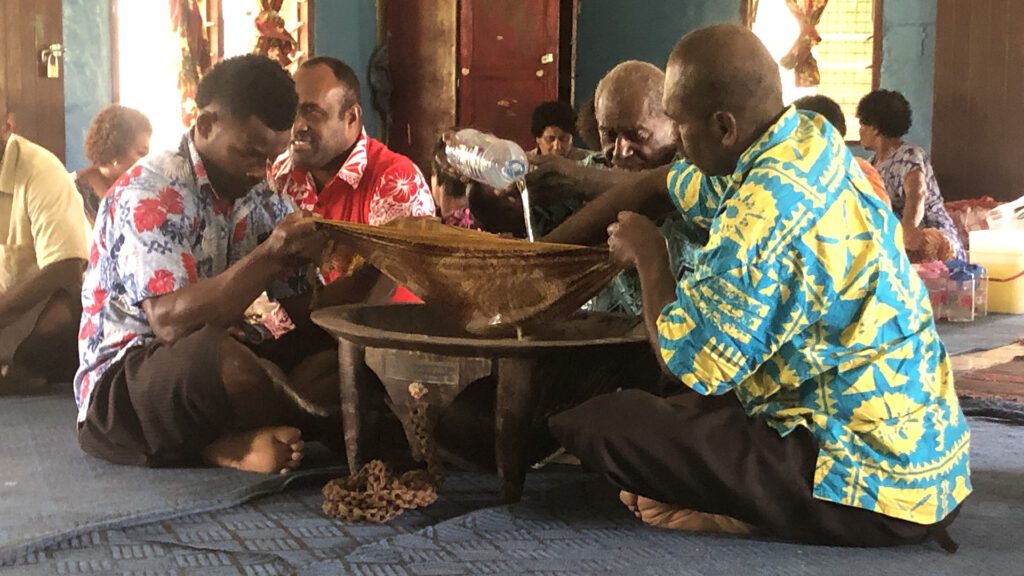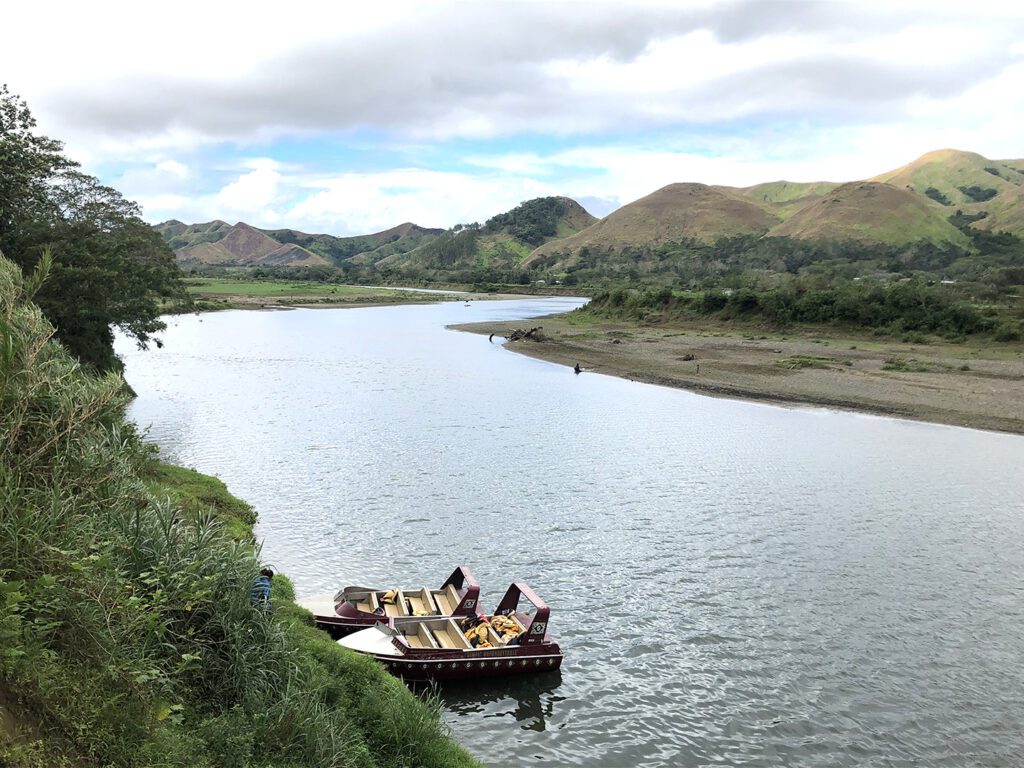Traveltalk’s JON UNDERWOOD heads up river for an authentic cultural experience that leaves him feeling warm and fuzzy although that could be the kava!
THE RAIN is stinging my eyes and it’s all I can do to hang onto the hood of my bright yellow poncho.
Despite the weather, Captain Freddy guns the jet boat at high-speed. As it twists and turns, water cascades over the sides and soaks my shorts and shoes. This is supposed to be fun, isn’t it?
I’m on Viti Levu in Fiji riding with Sigatoka River Safari, which has been voted Oceania’s leading adventure tour operator for six consecutive years at the World Travel Awards.
Interestingly, it was created by Australian Jay Whyte back in 2006 and has become a must-do when visiting Fiji.
All of which is little comfort as I try to peer through my water-stained glasses at the river and scenery flashing past. Stretching 120kms, this is the longest river in the country and is still used by the locals for fishing, transport, washing, farming and all manner of daily activities.

There are more than 50 villages along the river, some with as little as 100 residents. Sigatoka visits 18 of them on a rotation basis, giving each one the opportunity to host tourists and benefit from a percentage of the cash generated in ticket sales.
Today we’re heading up river to Koronisagana, which is home to about 250 people living in 95 houses. We’ll meet the village elders, have a tour and drink some kava. It’s dry season but today definitely isn’t. Let’s hope the sun comes out on the way home
We disembark the boat and walk up a muddy hill to catch our ride. The women in the group are told to cover their legs with sarongs and no-one is allowed to wear a hat entering the village. Both rules are strictly obeyed.

THE KAVA IS PREPARED IN TRADITIONAL STYLE

An old truck conveys us along a bumpy road and we finally arrive in Koronisagana. There’s a few awkward moments as tourists meet hosts and then we’re shown into the community hall, where the locals are waiting to (hopefully) give us their blessing.
The hall has flaking red and blue paint, ancient ceiling tiles but posters of current Fijian rugby players plastered on the walls. The ages of those present range from eight to 80 and there’s a curious silence as we sit on the floor in front of the heads of the five clans who make up the village’s residents.
Suddenly, the elders burst into song and the sound is magnificent as it echoes through the small space. Smiles break out, a bond is instantly created.
And so, it’s time for kava. Our guide tells us beforehand that it tastes like orange juice or maybe a chocolate milkshake. I’m here to tell you that what came out of the big steel bowl in the middle of the room tasted like neither.
It’s one of those things you just have to try for yourself. The best I can come up with is watery root juice.
Formalities completed we are taken on a tour of the village. Sadly, the persistent rain means this is curtailed to a short stroll down the main street but we see enough to know that Koronisagana is probably home to more chickens and dogs than people.
We return to the hall for a simple but delicious lunch prepared by the women of the village, very much in keeping with what they eat. There’s roti, fresh fruit, savoury pastries, sausage and chips, all washed down with fruit juice. No alcohol is allowed in the village – apart from the occasional bowl of kava.
By now we’ve all fallen in love with this place and that only intensifies when we’re invited to join in with a good old song and dance. Voices raised, arms and legs flailing, it’s a joyous sight to behold as traditional meets modern.
Parting is indeed sweet sorrow and soon it’s time to head back to the river for the boat ride home but we leave feeling enriched on several levels.
Some of the money we’ve paid to be here will go towards helping this community improve their village with generators, paved walkways, kindergartens and the like.
We’ve also experienced a remote way of life that’s been in existence for hundreds of years in one form or another.
It’s hard to know who benefits most from such encounters. Maybe this is a true win-win situation? All I know is that as cultural experiences go, this was certainly one of the best I’ve enjoyed, even with wet trousers







